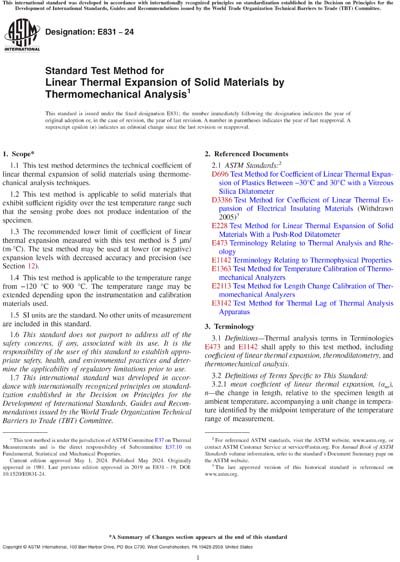Most recent
ASTM E831-24
Standard Test Method for Linear Thermal Expansion of Solid Materials by Thermomechanical Analysis
1.1 This test method determines the technical coefficient of linear thermal expansion of solid materials using thermomechanical analysis techniques.
1.2 This test method is applicable to solid materials that exhibit sufficient rigidity over the test temperature range such that the sensing probe does not produce indentation of the specimen.
1.3 The recommended lower limit of coefficient of linear thermal expansion measured with this test method is 5 m/(m·°C). The test method may be used at lower (or negative) expansion levels with decreased accuracy and precision (see Section 12).
1.4 This test method is applicable to the temperature range from 120 °C to 900 °C. The temperature range may be extended depending upon the instrumentation and calibration materials used.
1.5 SI units are the standard. No other units of measurement are included in this standard.
1.6 This standard does not purport to address all of the safety concerns, if any, associated with its use. It is the responsibility of the user of this standard to establish appropriate safety, health, and environmental practices and determine the applicability of regulatory limitations prior to use.
1.7 This international standard was developed in accordance with internationally recognized principles on standardization established in the Decision on Principles for the Development of International Standards, Guides and Recommendations issued by the World Trade Organization Technical Barriers to Trade (TBT) Committee.
ASTM International [astm]

